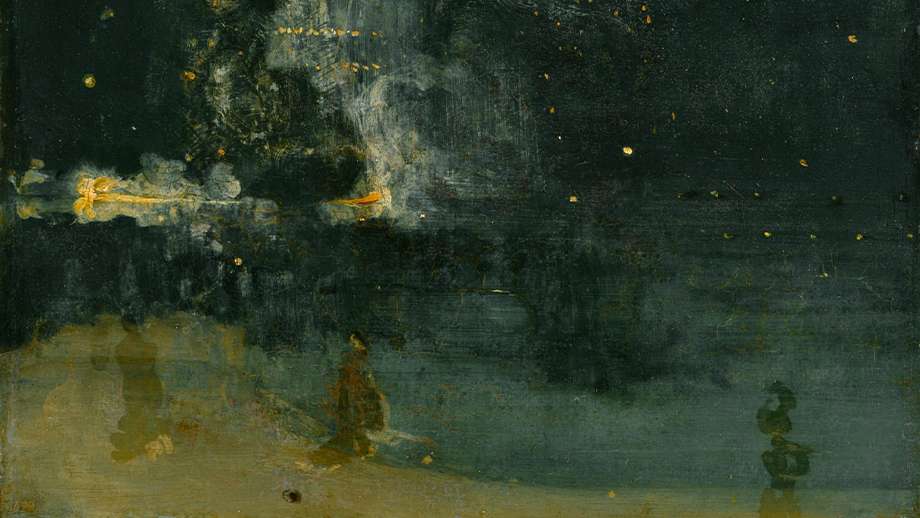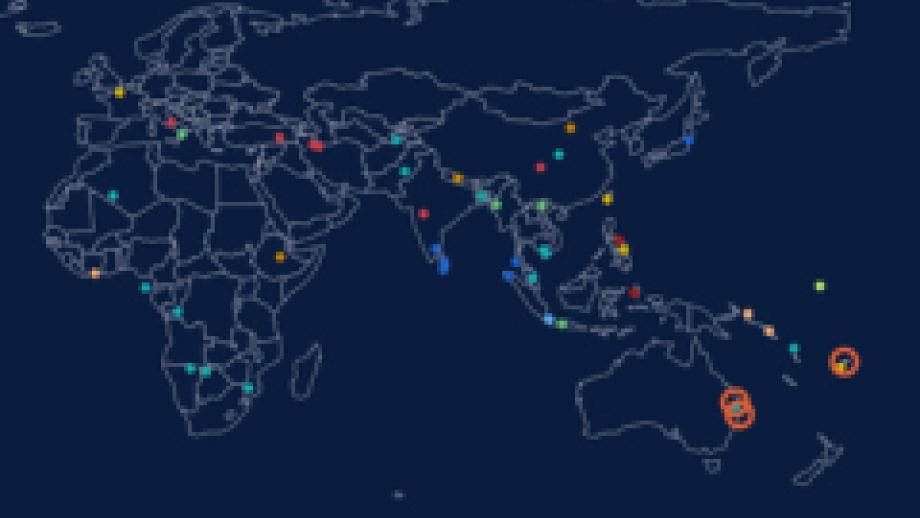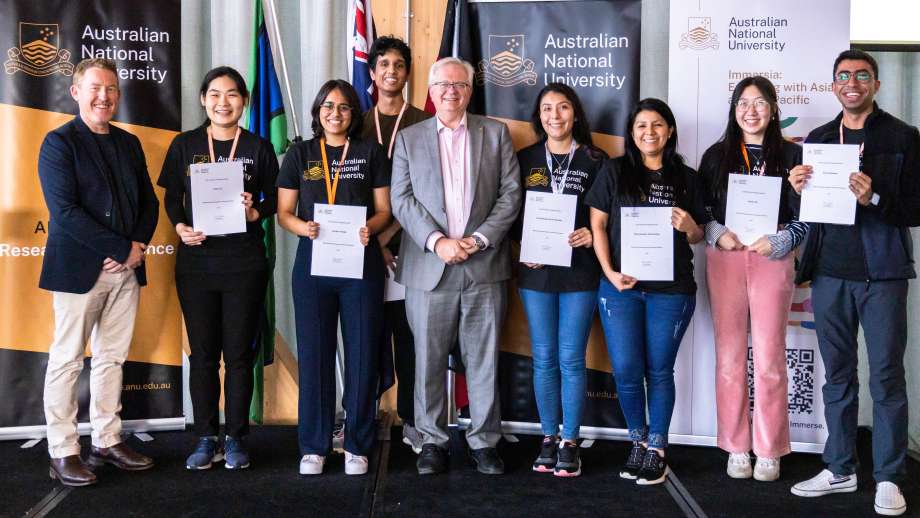The authoritarian resurgence in the Middle East: Counter-revolutions, reform and resistance
Presented by ANU College of Arts & Social Sciences
This conference examines the re-entrenchment of authoritarianism in the region in the post-Arab Spring uprisings, its transnational nature, and how various actors in the region have responded to, and contested, it.
The so-called "Arab Spring uprisings", which commenced in 2011, promised the prospect of democratic change in the Middle East and North Africa. To a large extent the change has proven to be in the reverse direction. The re-entrenchment of authoritarianism has shaped the political and social landscapes of the region. A core group of allied states, including Saudi Arabia and Egypt, have played crucial roles in maintaining a political order that secures unelected regimes and enables state repression to marginalise and contain dissidents.
An ever-increasing number of activists, opposition figures, journalists and academics have been incarcerated. Many of these efforts have become transnational, with authoritarian governments pursuing regional cooperation for the purpose of self-preservation. Other countries that are not part of the Saudi-led Gulf alliance, including Turkey and Iran, have also sought to suppress protest movements. State authorities have moved to seize online platforms and monitor citizens at home and abroad.
And yet, despite this, dissidents have continued to challenge regime narratives through online activism, collaborative international efforts, and, for some, using prominent positions within their countries to survive and navigate the politically closed region.
Particular themes include: transnational authoritarianism, gender, religious institutions and the state, diaspora activism, press and academic freedom.
Program details
The Authoritarian Resurgence in the Middle East: Counter-revolutions, Reform and Resistance
Convenors: Dr Raihan Ismail and Aidan Parkes
Day One (2 February 2022)
10:00 - 11:15 AEST
Opening remarks:
- Roger Noble AO, DSC, CSC (Australian Ambassador for Counter-Terrorism)
- Opening Keynote: Variants of Authoritarianism and the Greater West Asian Regional Order - Professor George Lawson
11:30-12:45 AEDT; 12:30 -1:45 UTC+0
Panel I: Authoritarian Resilience, Consolidation and Transnational repression
- Chair: Raihan Ismail
- The Gulf Crisis and Transnational Counter-revolutionary forces: 2011-2021 - Professor Kristian Ulrichsen
- Revisiting Authoritarianism in Iran - Professor Shahram Akbarzadeh
- Saudi Foreign Policy and Arab Counter Revolutions (ACR) - Associate Professor Toby Matthiesen
- Reassessing Authoritarian Resurgence in Tunisia - Mohammad-Dhia Hammami
14:15-16:15 AEDT
Panel II: Gender: Authoritarianism, Protests and Survival
- Chair: Associate Professor Kirsten Ainley
- Women's political activism in the Occupied Palestinian Territories: Navigating Gendered Palestinian Authority and Israeli Repression - Dr Liyana Kayali
- Embodying and Reproducing the Resistance: Basri Women Activism in Iraq -Dr Hadeel Abdelhameed
- Resistance in the Dark: Feminist Marches in Turkey - Dr Burcu Cevik-Compiegne, Associate Professor Selen A. Ercan & Dr Umut Ozguc
- Egyptian Women in Post-Mubarak Egypt - Dr Lucia Sorbera
Day Two (3 February 2022)
Panel III: Activism and Agency in Authoritarian Settings
- Chair: Professor George Lawson
- Lebanese Protests and Semi-authoritarian regimes - Associate Professor Tamirace Fakhoury
- Sacrifice Zones and Bare Life in Bahrain - Professor Simon Mabon & Associate Professor Staci Strobl
- Shrinking Sanctuary: The Four Extremisms Confronting Human Rights and Democracy from the MENA region - Dr Dana Moss
- In Iran, every day is Ashura and every prison is Karbala - Dr Kylie Moore-Gilbert
13:15-15:15 AEDT
Panel IV:Religious and Social Contestations of Authoritarian Political Spheres
- Chair: Mr Aidan Parkes
- Denying Agency: Yemeni modes of resistance to al-Qaeda and Islamic State - Professor Sarah Phillips
- Saudi satirists: Pushing boundaries and cautious activism - Dr Jessie Moritz and Tony Allison
- Authoritarianism in Iran: Caught Between Surviving Challenges and Managing Change - Dr Alam Saleh
- The Grand Shaykh of Al-Azhar and the Egyptian State - Dr Raihan Ismail
- When Insurgents Govern: Implications of Rebel Rule in Idlib Province - Katja Theodorakis
15:30-17:00 AEDT
Closing remarks:
- Professor Brian Schmidt (Vice-Chancellor of the Australian National University)
- Closing Keynote: Wither Press and Academic Freedoms in the Middle East - Professor Peter Greste
Contributors
Hadeel Abdelhameed Hadeel Abdelhameed is a Konrad-Adenauer-Stiftung e.V. Research Fellow in Iraqi gender, electoral and political issues, and a Research Assistant at Queensland University of Technology for the DECRA project Youth Leadership and the Future of Peace and Security.She received her PhD from La Trobe University in 2019. Her research interests centre around the Iraqi issues of women political representation and quota system, women activism and social movements, and cultural productions related to gender politics and war in Iraq.
Shahram Akbarzadeh is Research Professor in Middle East and Central Asian Politics at Deakin University and Deputy Director (International) of the Alfred Deakin Institute for Citizenship and Globalisation. He is the Convenor of Middle East Studies Forum and a former ARC Future Fellow on the role of Islam in Iranian foreign policymaking. Prof Akbarzadeh has published several books on Middle East politics including: Middle East Politics and International Relations: Crisis Zone - 2e (2022), Presidential Elections in Iran (2021, with M Pargoo), and Iran in the World: President Rouhani's Foreign Policy (2016, with D. Conduit). @S_Akbarzadeh
Tony Allison is a PhD Candidate at the Australian National University's Centre for Arab & Islamic Studies (CAIS). His research focuses on the responsiveness of the Gulf monarchies to their citizens socio-cultural demands. In 2021, Allison's honours thesis "The Prince and the Topor": Social Change in Saudi Arabia" won the AAIMS Riaz Hassan Prize for Best Honours Thesis.
Burcu Cevik-Compiegne is Convenor of Turkish Studies Program at the Australian National University's Centre for Arab & Islamic Studies (CAIS). She completed her PhD at the University of Technology Sydney in 2016, contributing to transnational understandings on issues of imperialism, nationalism, class and gender underlying the First World War and its remembrance in non-Western countries. Cevik-Compiegne's core research interests include postcolonial studies, memory studies and migrant cultures. She is currently working on a book project examining Indian and Turkish experiences and remembrance of the war and the Turkish and Indian participation in Anzac Day commemorations in Australia.
Selen Ercan is Associate Professor of Political Science at the Centre for Deliberative Democracy and Global Governance, University of Canberra. Her work sits at the intersection of normative democratic theory and empirical political research. Ercan is author of Mending Democracy. Democratic Repair in Disconnected Times (2020 with C. Hendriks and J. Boswell) - which advances the novel concept of 'democratic mending' to capture the incremental small-scale work of everyday actors aimed at repairing connections across democratic systems.
Tamirace Fakhoury is Associate Professor of Political Science and Global Refugee and Migration Studies in the Department of Politics and Society at Aalborg University, Copenhagen. She was previously Associate Professor of Political Science and International Affairs and Director of the Institute for Social Justice and Conflict Resolution (ISJCR) Lebanese American University. From 2012-2016, Fakhoury was appointed visiting summer lecturer at University of California Berkeley (UCB). Her core research areas include migration and refugee governance in conflict areas, international responses to forced-migration, norm contestation in the international system, and power-sharing and enthosectarian conflicts.
Mohamed Dhia Hammami is a Ph.D. student in Political Science at the Maxwell School of Citizenship and Public Affairs, Syracuse University. He holds a BA from Wesleyan University. He previously studied at the University of Tunis and the University of Carthage. He also consulted for International Alert, Avocats Sans Frontières, the Natural Resources Governance Institute, Tunisia's Truth and Dignity Commission, among others.
Anna Johnson is a PhD Candidate in Peace Studies & Sociology at the Kroc Institute for International Peace Studies, University of Notre Dame. Anna has nearly six years of experience working with Palestinian and international humanitarian organizations in Jerusalem and Bethlehem. Most recently, she worked for Mennonite Central Committee organizing learning tours to Palestine/Israel. She is interested in the growing industry of Christian peace and justice tours, including the possibilities these tours hold for affecting social change as well as their effect on local communities. Her core areas of research include cultural sociology, race and ethnicity, social movements, sociology of development and sociology of religion.
Liyana Kayali is Lecturer at the Centre for Arab and Islamic Studies (CAIS), Australian National University. Before joining CAIS, Kayali was a research fellow at the School of Law, Politics and Sociology at the University of Sussex, where she was part of a project examining the use of restorative justice approaches to respond to hate crime and hate incidents on university campuses. She also previously held a research associate role at the Centre for Gender Studies at the School of Oriental and African Studies (SOAS) at the University of London, and lectured at the School of Politics and International Relations at the ANU. She is author of Palestinian Women and Popular Resistance: Perceptions, Attitudes and Strategies (2020).
George Lawson is Professor of International Relations at the Coral Bell School of International Relations, Australian National University. Before joining the ANU, he was Associate Professor of International Relations at the LSE from 2013-2020. Lawson has written several foundational texts on historical sociology and international relations including: The Global Transformation: History, Modernity and the Making of International Relations (with B. Buzan, 2015), Global Historical Sociology (edited with Julian Go, 2017), and Anatomies of Revolution (2019). Anatomies was awarded the 2020 Hedley Bull Prize for Best Book in International Relations by the European Consortium for Political Research.
Simon Mabon is Professor of International Politics at Lancaster University. He is Director of the Richardson Institute based at Lancaster, where he also directs the Sectarianism, Proxies, and De-Sectarianization Project (SEPAD). SEPAD engages critically with ideas and processes of sectarianisation and de-sectarianisation, tracing the emergence and evolution of sectarian animosity in global politics. Mabon has written three key books on Middle East politics: The origins of ISIS: the collapse of nations and revolution in the Middle East (2017, with S. Royle), Saudi Arabia and Iran: Power Rivalry in the Middle East (2019), and Houses Built on Sand: Violence, Sectarianism and Revolution in the Middle East (2021). Houses was recognised as outstanding in the 2021 CHOICE Awards for excellence in scholarship and contribution to the field.
Toby Matthiesen is a Marie Curie Global Fellow at Stanford University and Ca' Foscari University in Venice, leading a project on Sunni-Shia Relations in the Middle East with a focus on Iraq. From 2015-2020 he was Senior Research Fellow in International Relations of the Middle East at St. Anthony's College, University of Oxford. From 2011-2015, Matthiesen was a Research Fellow in Islamic and Middle Eastern Studies at Pembroke College, University of Cambridge. He is author of Sectarian Gulf: Bahrain, Saudi Arabia, and the Arab Spring That Wasn't (2013) and The Other Saudis: Shiism, Dissent and Sectarianism (2015). His forthcoming book The Caliph and the Imam: The Making of Sunnism and Shiism (2022) offers a global history of Sunni-Shi'i relations.
Jessie Moritz is a Lecturer at the Centre for Arab & Islamic Studies (CAIS), Australian National University. Before joining CAIS, she previously completed a postdoctoral fellowship with the Transregional Institute, Princeton University, where she focused on post-2014 economic reform programs in the GCC. Moritz's PhD dissertation: "Slick Operators: Revising Rentier State Theory for the Modern Arab States of the Gulf" received the 2017 Dissertation Award from the Association for Gulf and Peninsula Studies. Her latest publications include guest editing a special section in International Affairs on new trends in Gulf international relations and transnational politics.
Kylie Moore-Gilbert received her doctorate from the University of Melbourne and is currently Melbourne Early Career Academic and Lecturer in Islamic Studies at the Asia Institute, University of Melbourne. Her dissertation, Shi'i opposition and authoritarian transition in contemporary Bahrain: the shifting political participation of a marginalised majority, examined how Bahrain's Arab Spring protests led to dramatic shifts in government opposition and inter-opposition dynamics, resulting in the regime's transition from liberalised autocracy to full-authoritarianism. Moore-Gilbert has published widely on Middle Eastern politics and the role of new media in social activism.
Roger Noble (AO DSC CSC) is Australia's Ambassador for Counter-Terrorism. Mr Noble has had a distinguished military career, most recently serving as a Major General and Head of Military Strategic Commitments at Australian Defence Force Headquarters. Previous senior ADF roles include Deputy Chief of Joint Operations and deployments to Iraq as Deputy Coalition Land Force Commander and to Afghanistan with the International Security Assistance Force. Major General Noble was also seconded to the United States Army - Pacific as Deputy Commanding General. Mr Noble holds a Master of International Public Policy (Honours) from Johns Hopkins University, a Master of Business Administration from Deakin University, a Master of Defence Studies from the University of Canberra, and a Bachelor of Arts (Military History) from the Australian Defence Force Academy.
Sarah Phillips is Associate Professor of International Relations at the University of Sydney. Her research draws from years of in-depth fieldwork, and focuses on international intervention in the global south, knowledge production about conflict-affected states, and non-state governance, with a geographic focus on the Middle East and Sub-Saharan Africa. Sarah believes that studying places that are typically marginalised within International Relations is the best way to understand how the world works. She is author of: Yemen's Democracy Experiment in Regional Perspective (2008), Yemen and the Politics of Permanent Crisis (2011) and When There Was No Aid: War and Peace in Somaliland (2020).
Alam Saleh is Lecturer in Iranian Studies at the Centre for Arab and Islamic Studies at the Australian National University. Saleh is also a Council Member of the British Society for Middle Eastern Studies (BRISMES) and Reviews Editor for the British Journal of Middle Eastern Studies. He received his PhD, MA and BA from the School of Politics and International Studies at the University of Leeds. Saleh is Fellow of Higher Education Academy and has also been engaged with policy practitioners and external professional bodies such as the UK Ministry of Defence, NATO, European Council on Foreign Relations, and has also consulted for Transparency International Defence & Security, UNICEF, and the BBC.
Lucia Sorbera is Chair of Arabic Studies Department and Senior Lecturer at the University of Sydney. Her research in the field of women's history focuses on the study of Egyptian feminism. Sobera's PhD thesis, titled Nationalism, cosmopolitism and internationalism in the discourse of the Egyptian Feminist Union (in Italian) analyses the origins of Egyptian Feminist and its relationships with the international suffragist movement between the First and the Second World War. She has also published on Arab women's autobiography, Arab women's political leadership, and contemporary Iraqi cinema.
Staci Strobl is a Professor of Criminology and Criminal Justice at Shenandoah University in Virginia (USA) and a fellow with the Sectarianism, Proxies, and Desectarianisation Center (SEPAD), University of Lancaster (UK). Her research focuses on comparative criminal justice in the Arabian Gulf and Eastern Europe with particular attention paid to issues of gender, ethnicity, and religious identity. She is the author of Sectarian Order in Bahrain: The Social and Colonial Origins of Criminal Justice (Lexington Books, 2018). In 2009, she won the Radzinowicz Memorial Prize for her article in the British Journal of Criminology about the criminalization of female domestic workers in Bahrain. She is also published in the International Journal for Crime, Justice and Social Democracy, The Review of Faith and International Affairs, and Nidaba: An Interdisciplinary Journal of Middle Eastern Studies.
Katja Theodorakis is a PhD Candidate at the University of New South Wales (UNSW). She is a national security professional with particular expertise in the areas of terrorism/extremism, jihadism and the propaganda dynamics of asymmetric/hybrid conflict. She works as Program Manager for Foreign/Security Policy and Counter-Terrorism at the Konrad-Adenauer-Foundation's Regional Programme Australia and the Pacific in Canberra. Here, she coordinates a portfolio that includes topics like the wider strategic relations in the Asia-Pacific, cybersecurity, European defence/security matters and the field of terrorism/extremism. Her role entails high-level government stakeholder engagement and strategic outreach to the Australian and German/European national security community.
Kristian Coates Ulrichsen is a Baker Institute fellow for the Middle East. Working across the disciplines of political science, international relations and international political economy, his research examines the changing position of Persian Gulf states in the global order, as well as the emergence of longer-term, nonmilitary challenges to regional security. Previously, he worked as senior Gulf analyst at the Gulf Center for Strategic Studies between 2006 and 2008 and as co-director of the Kuwait Program on Development, Governance and Globalization in the Gulf States at the London School of Economics (LSE) from 2008 until 2013. Coates Ulrichsen has published extensively on the Gulf. His books include: Insecure Gulf: The End of Certainty and the Transition to the Post-Oil Era (2011), Qatar and the Arab Spring (2014), The Logistics and Politics of the British Campaigns in the Middle East, 1914-22 (2011), The First World War in the Middle East (2014). His most recent books include The Gulf States in International Political Economy (2015), The United Arab Emirates: Power, Politics, and Policymaking (2016) and Qatar and the Gulf Crisis (2020).
Editors
Raihan Ismail is an ARC DECRA fellow and Senior Lecturer at the Centre for Arab & Islamic Studies (CAIS), ANU. She was the co-recipient of the Max Crawford Medal in 2018, awarded by the Australian Academy of the Humanities for 'outstanding achievement in the humanities by an early-career scholar'. Her research interests include Political Islam, sectarianism, and the intertwining nature of religion and politics in the Middle East. Ismail has published widely in academic and non-academic outlets. She is author of Saudi Clerics and Shia Islam (2016) and Rethinking Salafism: The Transnational Networks of Salafi 'Ulama in Egypt, Kuwait, and Saudi Arabia (2021).
Aidan Parkes is a PhD Candidate in Political Science at the Centre for Arab & Islamic Studies (CAIS). His research interests lie in the areas of world/regional orders, transnational Shi'ism and collective identity. Through the important yet underexplored issue of Shi'i shrine cities, his research focuses on the intersection of political theory and Area-Studies, to analyse how Shi'i shrine cities are constructed as "pivots" in world politics. He is a PhD Fellow at the SEPAD Project, and completed his BA and Honours in International Security Studies (ISS) at the Strategic & Defence Studies Centre (SDSC), Australian National University.
Location
Speakers
- Roger Noble AO, DSC, CSC (Australian Ambassador for Counter-Terrorism)
- Professor George Lawson (Opening keynote)
- Professor Sarah Phillips
- Dr Dana Moss
- Dr Kylie Moore-Gilbert
- Associate Professor Tamirace Fakhoury
- Professor Shahram Akbarzadeh
- Professor Kristian Coates Ulrichsen
- Professor Simon Mabon
- Professor Staci Strobl
- Professor Toby Matthiesen
- Katja Theodorakis
- Associate Professor Selen A. Ercan
- Dr Umut Ozguc
- Associate Professor Kirsten Ainley
- Dr Liyana Kayali
- Aidan Parkes (Convenor)
- Dr Alam Saleh
- Dr Hadeel Abdelhameed
- Mohamed-Dhia Hammami
- Professor Peter Greste (Closing keynote)
- Dr Lucia Sorbera
- Professor Brian Schmidt AO
- Dr Jessie Moritz
- Tony Allison
- Dr Umut Ozguc
- Dr Raihan Ismail (Convenor)
Contact
- Raihan Ismail61258456



